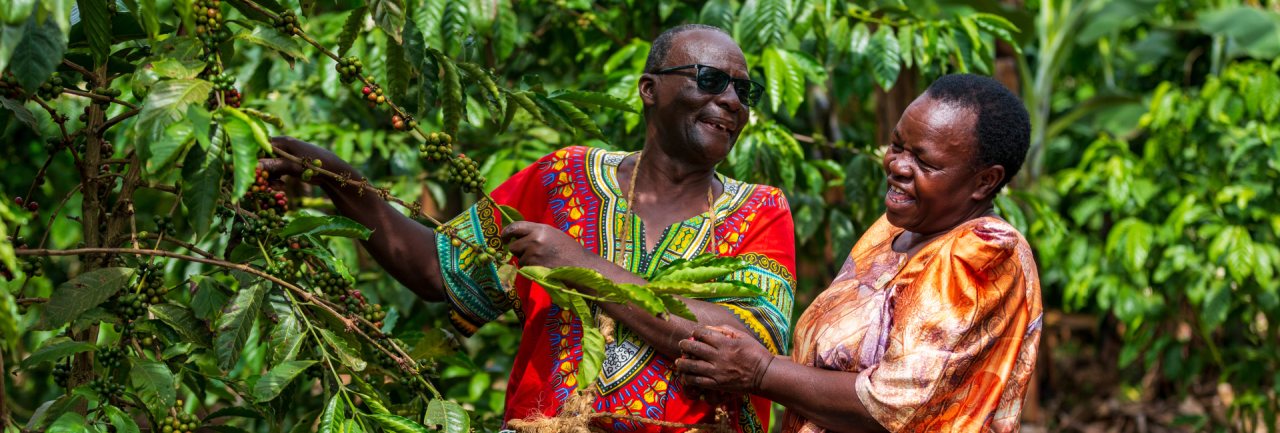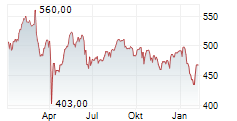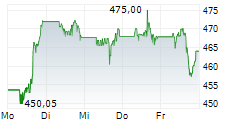
By Vicki Hyman
Mastercard
NORTHAMPTON, MA / ACCESSWIRE / October 1, 2024 / There is an economic sector in Africa worth $1 trillion a year, and yet most of the people who work in it are invisible.
"Farmers are the folks that you don't see," says African Development Bank Group President Akinwumi A. Adesina. "Banks don't see them. Buyers don't see them. Traders don't see them. Insurance companies don't see them."
These smallholder farmers often live in remote areas with little connectivity, leaving them with no digital footprint and limiting their access to better prices, loans and innovative agricultural inputs like climate-resistant seeds.
But a new initiative called MADE Alliance, which stands for Mobilizing Access to the Digital Economy, aims to bring 3 million farmers in Kenya, Tanzania and Nigeria into the digital economy. It's the first phase of an ambitious plan, launched earlier this year by the African Development Bank Group and Mastercard, to enable digital access for 100 million people and businesses across the continent in 10 years.
The farmers will be provided a digital identity and access to a network of 6,000 digital agricultural agents through Mastercard's Community Pass infrastructure, which provides access to the digital economy though a digital credential that enables farmers to access any service on the platform.
Adesina, the African Development Bank's Beth Dunford, who is vice president for agriculture, human and social development, Community Pass founder Tara Nathan, and other partners shared their insights at a reception last week on the sidelines of the United Nations General Assembly, where Mastercard hosted the inaugural MADE Alliance Steering Committee meeting to review progress and discuss open challenges and required support to scale MADE programming.
MADE's deployed programs include unlocking affordable digital financial services for sunflower farmers in Tanzania, internet connectivity and digital skilling for farmer cooperatives in Kenya, clean energy asset financing for farmers in Kenya, and access to markets via Community Pass.
The Mastercard Newsroom spoke with Dunford about the challenges facing smallholder farmers, the possibilities digitalization affords and why investing in female farmers in particular is, in her words, "smart economics."
Why did MADE Alliance Africa chose to focus on the digitization of agriculture for smallholder farmers and women as its first initiative, and why do you think the African agriculture sector holds so much potential?
Dunford: Africa is home to 65% of the planet's remaining uncultivated, arable land, and we believe that agriculture is a critical sector to drive Africa's development. Agriculture accounts for nearly 60% of total employment in Africa and accounts for more than 25% of GDP in its low-income countries. Across the continent, there's no agriculture without women. They provide an estimated 60% to 80% of labor input to the sector. Growth in agriculture is terribly effective compared to many other sectors in lifting people out of poverty, providing degrees of agency to women, for feeding Africa's people and positioning the continent as a breadbasket to the world.
Our challenge is that the majority of Africa's food systems producers are smallholder farmers who, simply put, struggle from season to season due to lack of access to quality inputs like seeds and fertilizer, or access to affordable financing to purchase farming necessities. Africa's smallholder farmers have a variety of needs that the MADE Alliance Africa can solve by boosting sustainable digital access to critical services. MADE Alliance aims to work with local banks to initially provide digital identities to millions of smallholder farmers and women. Digital identities are the gateway to accessing digital services and to high-quality inputs.
Take, for example, that an estimated 99% or more of agriculture transactions in Africa are cash-based - 99%! Digitalizing agriculture and the distribution of goods will bring enormous efficiencies to the marketplace, as well as reduce waste and fraud across the ecosystem.
Mastercard's Community Pass can help establish digital identities for millions of farmers, bring more transparency to pricing and help them access agricultural inputs. What are the challenges involved in bringing this solution to market, and how can they be overcome?
Dunford: Community Pass is designed to operate in remote and rural communities - often with limited connectivity and energy access. This technology, to adapt a popular phrase, "meets farmers where they are." However, there are challenges involved in bringing these solutions to the "last mile" and connecting smallholder farmers and women to financial institutions - challenges that we believe can be overcome or mitigated, including capacity building, infrastructure and the need for new models for governments and the private sector to work together.
To scale these technologies to more farmers in a timely manner, we need to work with farmer cooperatives, networks of member farmers who reap many benefits of doing business as a unit. The challenge is that the majority of farmer cooperatives in Africa are not as operationally efficient as they are in other regions, and the prevalence of digital literacy is relatively low. Africa needs significant investment to educate farmers on how they can benefit from digital technologies to access resources.
MADE Alliance's digital services can connect farmers to new buyers and suppliers who are physically far away, but costs to transport goods to market remain a barrier. Critically, farmers and women need digital devices and reliable connectivity to take advantage of the digital economy.
Finally, local governments see the benefits of digitalization in agriculture, but they can benefit from access to clear models for engaging with the private sector to develop a robust digital ecosystem. Tendencies to centralize digital infrastructure related to agriculture inhibit private-sector participation and make it difficult for businesses to develop sustainable models to serve agricultural communities.
Can you talk a little more about how the MADE Alliance will benefit women?
Dunford: Roughly half of Africa's smallholder farmers are women, with the majority of agriculture sector labor carried out by women. However, compared to their male counterparts, female farmers struggle to create a sustainable livelihood in agriculture, because they are less likely to own property titles or other assets often needed to access financial services. Women farmers have less access to information and extension services, and they lack access to inputs such as seeds and fertilizers. They are disproportionately impacted by climate risks. Collectively, these challenges result in women farmers typically producing up to 20% to 30% less output than male farmers.
The Community Pass initiative helps women make farming a sustainable livelihood by enabling access to critical service providers like banks and agricultural buyers, as well as creating transparency.
Women are the backbone of African economies, and investing in women entrepreneurs fosters women's empowerment and agency over decisions around business, family and community. Investing in Africa's women entrepreneurs is smart economics. Investing in Africa's women has been a cornerstone of the Bank's work. In fact, no Bank project or program will receive Bank financing, unless it details how it will benefit women.
Beyond Community Pass, what role can the private sector play in strengthening the food supply chain in Africa, particularly in making smallholder farmers more resilient? What can governments do?
Dunford: MADE Alliance includes Equity Bank Group, Microsoft, Heifer Foundation and Unconnected.org and soon will add another four to five global and local partners signing on to membership. We welcome more. The MADE Alliance offers a new approach to partnership - one that is private sector-led and thus commercially sustainable by design. Our partnership is anchored in line with the Bank's regional member countries' national policies.
Importantly, the MADE Alliance makes the case that for the private sector, sustainability means profit. Alliance-facilitated partnerships between donors and governments are critical to provide the catalytic funding and regulatory support that de-risks private-sector entry into agriculture markets and segments where margins are razor-thin. Every MADE Alliance program is anchored by a private-sector entity, with other partners crowding into the same community, providing complementary services or funding to bring the program to life.
Originally published by Mastercard
Follow along Mastercard's journey to connect and power an inclusive, digital economy that benefits everyone, everywhere.

View additional multimedia and more ESG storytelling from Mastercard on 3blmedia.com.
Contact Info:
Spokesperson: Mastercard
Website: https://www.3blmedia.com/profiles/mastercard
Email: info@3blmedia.com
SOURCE: Mastercard



